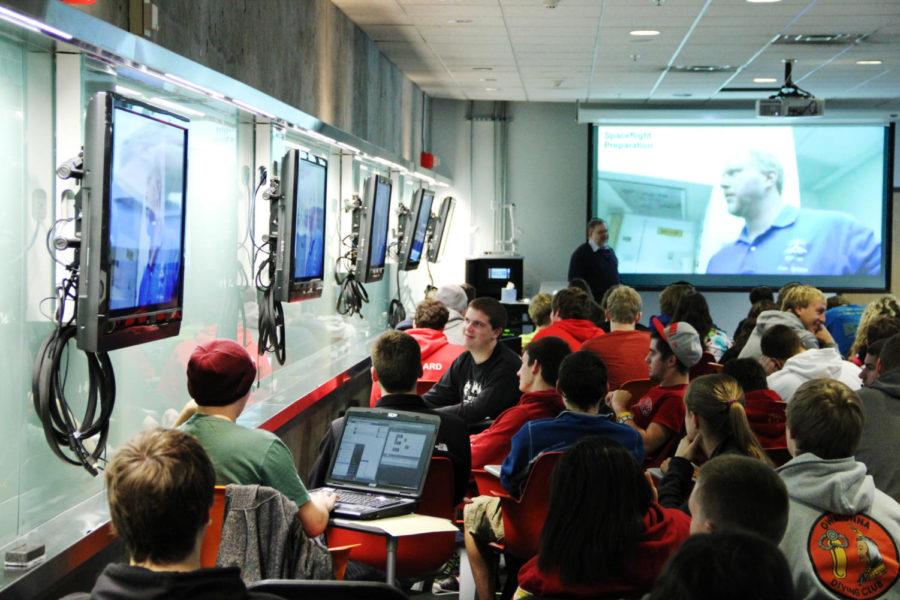Mcgarvey: Majors don’t determine jobs
Photo: William Deaton/Iowa State
Columnist McGarvey argues that majors are irrelevant. By going to college and getting your degree, you are more likely to get a job regardless of the area of study to which your degree applies.
October 8, 2014
“What do you want to be when you grow up?”
We’re all familiar with this question. Many of us responded with an astronaut, firefighter, police officer or some other hero figure we looked up to. We want to become that which we idolize.
As we get older we begin to change and question what it is we really do want to become. After all, we can’t all become astronauts. Not all of us chase that dream we had when we were younger.
In high school, our outlook on life changes even more. Suddenly, college is knocking at the door. We had to choose which college to go to and what to study. We analyze our passions and goals, as well as our likes and dislikes. We take all of the aptitude tests we’re required to. It feels like a desperate search for something to belong to.
When I first started college, I had one major in mind. I had already picked out the job that I wanted to do. As it turns out, I ended up changing my mind four times in the first two years. Each time I found a new field, I took the course and realized it wasn’t for me. It was only after I finished my second year that I realized no matter my major, I could establish a career in a completely different field because I’d have that piece of paper to prove I had graduated.
College isn’t about building yourself just to look good. College is about honing your skill for the “real world,” not about enjoying your time in the classroom. I’m not saying you can’t have a good time in some classes, but rarely will someone enjoy writing an eight-page paper on an assigned topic.
Some of us go to college to gain experience, to grow up and get out of our parents’ shell. We may choose a major because it pays well or because that’s what our parents did, and that’s OK. But it doesn’t mean you’re limited to that field. According to a poll done by CareerBuilder, a website dedicated to helping people gain employment, more than 30 percent of workers who attended college reported to have never found a job in their field of study. That’s nearly one-third of U.S. college graduates.
This statistic allows me to look past the current levels of stress that come from school. I used to think not getting perfect grades would set me back after I graduated. It’s not about that though. It’s beyond the grades. Future employers won’t wonder why you took Art History instead of Music History. They’ll want to know what you learned from that experience.
There will be jobs available when we graduate. There may not be six-figure jobs, but there will be work. The conceptual theories in college are not always what we come away with. During my first two years I learned how to deal with high levels of stress. That can translate to any workplace, not just the one I’m in school for.
Sure, ideally everyone who studies history will go on and use that in their future jobs and do great things with it. In reality, most of them will go on to teach, or write, or use their researching skills for another job.
Early this semester, I received news that my friend earned a job at KCRG in Cedar Rapids. He had decided earlier that he was going to take some time off from college to focus more on a learning experience. “I’m expecting to get my degree at some point, but right now networking and experience is more important,” says Braden Kopf, now technical director at KCRG. If he had decided to go to college this fall, he said, “I wouldn’t have been able to meet all of these people.”
The point I’m trying to make is don’t worry about what you’re studying. Pick something that capitalizes on your strengths and makes your weaknesses better. Your college degree is a piece of paper with a few signatures on it.
I am by no means advocating for people not to go to college. I believe the overall experience is worth it. There are many valuable things we can learn while we’re here. But real world experience is more than getting an A on an essay or bombing your last speech assignment. It’s about coming to class, doing the best you can and staying persistent.
You may not know what you want to do for now, but keep moving forward. You never know what might happen next.







